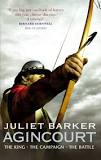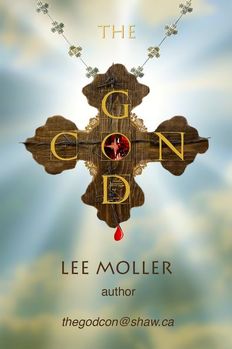 This is a fairly long book, but it is possible to slide through parts with long lists of name and such. Agincourt took place in October, 1415. It is fascinating that we know so much about those times, and at the same time, so little. The general impression of most Agincourt stories is that English archers won the day. As always, the truth is more complex. In the 1400s, the code of chivalry was the unwritten law. As an example, chivalry had rules for how to treat a captive, based on their rank, and how much you could charge as a ransom. The code of chivalry seemed to be one step down from god's law. Both sides prayed for gods favor, and it was assumed that the winner of the battle got it. Chivalry had a code for kings. E.g.: They could avoid placing their troops in peril by challenging the other guy to single combat. The loser would, by the code, be put to death. The feudal system had many odd quirks. We are used to the idea of battalions, division, corps, squads etc as the breakdown of armies. In the feudal world, the hierarchy was king, lord, and men-at-arms (aka knights). To be a knight, you had to have x number of horses, pages, bowmen, fletchers, etc. Each knight brought the works with him. The battle was fought in France near the town of Azincourt (sic). Many factors influenced the battle, including geography, the nature and number of troops, and the deployment of the same. It is possible that the latter was the prime difference in the battle. Henry V was close to his men, ala the famous Shakespeare play. (BTW: "Havoc" was the general army call for "loot the joint", giving us the phrase "Cry havoc and let slip the dogs of war.") The French lords were all about glory, place-in-battle and the favor of the king. They did not cooperate like the English did. And that was probably what turned the battle for Henry. The French king Charles VI was nuts and was not there. Only his emissaries. It was an interesting look at a time so different from hours. Wind the clock forward or back 100 years from 1415 and you would hardly notice the difference. One hundred years ago, the USA had few paved roads, only a small number of cars; the airplane was a cool toy; and the telephone and electric light were coming. Our world changes at lightning speed compared to theirs. It is striking how complete religious beliefs dominated everyone's actions. Soldier's actually believed that they would have god's favor if they died in battle, making it much easier to convince them to actually do so. Such is the nature of "faith". Finally, the following is a fun quote (slightly modified) from the book which I used in my talk to the BC Humanists about The God Con in August: "Mondeville (an agent of the French king) recommended that doctors should use magical cures, not because they worked, but because if they do work, the surgeon will be credited with a marvelous piece of work, while if they do not work, he will not be accused of missing some vital step. He advised surgeons to always charge for medicine because the more expensive the cure the more confidence the patient will have in it. He also suggested that surgeons use big words, and if necessary, make up words, to impress their patients."
0 Comments
Leave a Reply. |
AuthorLee Moller is a life-long skeptic and atheist and the author of The God Con. Archives
May 2024
Categories
All
|

 RSS Feed
RSS Feed